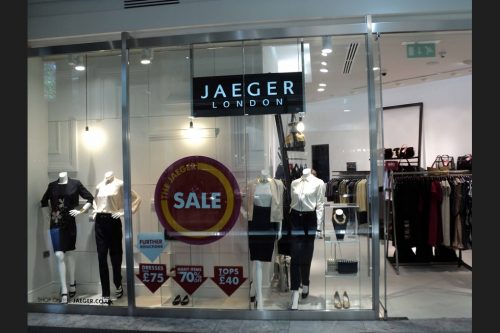Midlands company administrations fall sharply in Q2

The number of companies falling into administration in the Midlands fell sharply during the second quarter of 2017.
Analysis by KPMG of notices in the London Gazette shows that the number of companies in the Midlands entering administration during the three-month period fell from 41 in the first quarter to 28.
This is also a fall when compared to the same period last year (Q2 2016) which saw 42 corporate insolvencies.
The picture across England and Wales mirrors this trend, with insolvencies across the country decreasing from 327 in Q1 to 280 in the second.
However, while the overall numbers both nationally and in the Midlands have softened slightly, KPMG said the environment remained tough for retailers and companies across the wider consumer and leisure industries, with 27 retailers entering insolvency over the quarter nationally, including high street brands Jaeger, Joy and Jacques Vert, and jeweller Theo Fennell.
Chris Pole, restructuring partner at KPMG in the Midlands, said he expected the dip seen in Q2 to level back out over the second half of the year, as companies across the region contend with further economic uncertainty and a continued gradual slowdown in consumer spending.
He said: “On the face of it, the latest figures seem encouraging and does reflect what we are seeing on the ground, with much of our current work revolving around strategy and options, cost reduction and working capital management rather than insolvencies. However, we should not be lulled into a false sense of security, particularly as there are still certain hotspots which give cause for concern.”
Looking at which sectors were most vulnerable within the first half of the year in the Midlands, the building and construction sector fared the worst, with 11 businesses entering administration since the turn of the year, whilst the manufacturing sector experienced nine administration appointments over the same period.
Both of these sectors were largely impacted by an increase in costs for imported raw materials, which subsequently, squeezed profit margins.
“There are other clouds on the horizon. The impact of Brexit remains to be seen and the recent election has undoubtedly introduced greater uncertainty resulting in a negative effect on consumer and corporate confidence,” added Mr Pole.
“While inflation for the month of June was down for the first time in over a year, it’s still well above average earnings growth, and there is continued speculation that interest rates may soon rise. Additionally, adverse exchange rate movements have impacted certain sectors, with businesses expressing concern over their ability to pass on additional costs to their customers.
“This concern echoes the results of KPMG’s recent survey of CEOs which indicated that the majority of UK business leaders are subdued about their growth prospects over the next three years. Indeed, one in two CEOs believe their business will grow by less than 2% over the next few years, while 74% warn that inflationary increases mean they will have little choice but to pass on increased costs to their customers.
“All of which leads me to conclude that the decline in insolvency numbers seen over the last three months may just be a temporary blip.”








